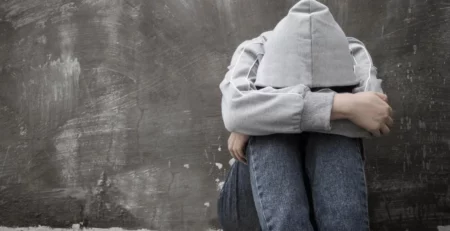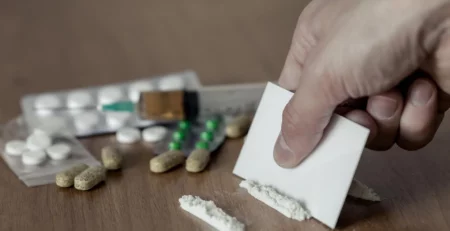How to Have A Healthy Relationship After Trauma
A Guide on Building Healthier Relationships After Trauma
You’re a trauma survivor. After a lengthy, challenging healing process, you have had tremendous personal growth. You’re ready to form meaningful connections with a potential new relationship partner. But you also want to know how to have a healthy relationship after trauma.
Icarus Nevada, a Joint Commission-accredited treatment center in Las Vegas, has provided emotional support for many clients who have had to face unresolved trauma.
In our experience, a fulfilling relationship takes commitment from both partners. When past relationships/trauma hold one of the partners back, it sets up the circumstances for an unhealthy relationship.
This post will help you understand how past trauma affects relationships and how a once-traumatized partner can have a loving relationship after healing. We invite you to keep reading if you’re wondering how to move forward and start a new relationship after healing from past trauma.
Understanding How Past Trauma Can Affect Relationships

Living with unresolved trauma can lead to emotional landmines that can harm relationships. Trauma survivors may experience behavioral and mental health challenges like hypervigilance, anxiety, or difficulty trusting others, even when their partner has never given them a reason for concern.
Trauma responses can include:
- Emotional shutdown
- Co-dependent behaviors
- Overreacting to minor issues
- Self-protection mode, pushing others away
- Inability to communicate effectively
These are not personal shortcomings or flaws. Recognizing these behaviors as part of the trauma response is a first step in learning how to avoid relationship challenges.
Get Confidential Trauma and Mental Health Assessment
Increasing Emotional Intimacy for a Healthy Relationship
When one or both partners are healing from post-traumatic stress disorder (PTSD) or other trauma disorders, an open and nurturing environment is a must. Emotional intimacy can only flourish by allowing individuals to see and accept you for the beautiful person you are.
But sharing your feelings and listening with empathy can be difficult for anyone who has experienced trauma. It can be even more of a challenge for people who survive long-term or childhood trauma.
Continue reading to discover the essential relationship basics for trauma survivors seeking to establish fulfilling connections and healthy relationships.
Establishing Open and Honest Communication Skills

Open communication with one’s partner is a must in every healthy relationship. But trauma can make self-expression feel awkward or risky. Trauma survivors often feel judged or rejected by others because that’s what has happened to them in the past.
Try practicing communication skills calmly and without jumping into a defensive stance. Use “I” statements to avoid blaming your partner and set aside uninterrupted, device-free time for important talks. With practice, you’ll begin to feel more comfortable discussing your feelings with your new partner. The hard work it takes to build a non-judgmental environment will help strengthen your relationship dynamics in the long run.
Setting Healthy Boundaries to Avoid Triggering Past Experiences
Setting and maintaining boundaries serve as a safety net when building healthy relationships, whether romantic or otherwise. Setting boundaries helps you feel safe and prevents you from becoming emotionally overwhelmed.
Learning to set boundaries takes a good dose of self-reflection. Some need physical personal space after a traumatic event; others need time or a safe space to rebuild trust with others. With practice, you’ll become more confident in communicating and enforcing your boundaries with your partner.
Building Trust Between Partners for a Healthy Connection
Past broken trust can carry over and cause many relationship issues. But it’s time to leave bad past experiences behind you, not letting them dictate your present reality. It will take finding a partner who does more than utter words of encouragement – it takes someone who will build trust through actions.
A partner worth investing time in to build the healthy relationship you want will understand how they can support you and help rebuild trust. They won’t see this work as a burden but will gladly make you feel safe after trauma.
Mutual Respect Builds the Emotional Connection
Both the trauma survivor and their partner are responsible for creating safety for one another. That supportive environment is the result of focusing on mutual respect. Trauma affects individuals so greatly that it takes an investment in self-compassion and respect, but it also means developing enough self-awareness to know that one’s partner deserves the same treatment.
Disrespectful behaviors that can trigger trauma survivors – gaslighting, non-validation, or being dismissive – should not be tolerated by either partner.
Building a Health Support System after a Traumatic Experience

Trauma affects relationships beyond the romantic realm, as well. Besides opening your heart to a potential new partner, that person shouldn’t be your entire support system. Surrounding oneself with friends, family, and even trusted colleagues is essential in long-term recovery from trauma.
Here are some things to know about why it’s crucial to open yourself up to others who can provide support as you continue to move past your trauma:
The Importance of Self-Compassion if You’ve Experienced Trauma
Many are especially hard on themselves about the trauma, dealing with blame or shame despite being a victim. Self-love is a powerful tool for healing. Remind yourself that you’re doing your best, despite the trauma you’ve experienced.
Allow yourself grace as you form new relationships after trauma, romantic, or learning to trust friends again. Celebrate your small wins and remember to prioritize your self-care strategies.
Get Accredited Treatment Programs at Icarus – Call Now!
Setting Boundaries with Well-meaning Family and Friends
Just as it’s important to establish boundaries with your love interest, it’s equally necessary to do so with your family and friends. They may have only the best of intentions, but they might still cross the line, often without realizing it. That can look like offering unsolicited (and unwelcome!) advice or expressing opinions that undermine your decisions.
Don’t be afraid to set your limits with them, whether that means avoiding certain topics or limiting your exposure to any toxic traits they have, you will protect your emotional well-being.
Practice Patience When Explaining Difficult Emotions

Building support and better relationships after trauma means being honest about flashbacks, nightmares, or other trauma-related behaviors. Be patient with yourself – and your friends or partners – as they try to understand why, for instance, you can barely regulate your emotions at times.
Use simple, clear language and answer their questions. They’re not nosy – they care! Patience is more than an act of kindness in this situation; it can bridge your world and your loved ones.
Avoid Self-medication or Substances When Forming New Connections
Using alcohol, marijuana, or illicit substances can seem like a good way to reconnect with others. But these coping tools can actually destabilize relationships.
If you notice that you’ve felt like using substances to feel safe connecting with others, it’s a sign that you might need some additional support.
Attending Support Groups to Develop a Strong Sense of Community
Attending support groups can make a significant difference in your ability to continue working on your trauma recovery goals. It also provides a safe space to build relationships with others who understand the pain of struggling with trauma or mental health issues.
If you’ve had past issues with alcohol or drug abuse, Alcoholics Anonymous and Narcotics Anonymous can be an excellent option.
But if you don’t have addiction issues, SMART Recovery is another option where anyone can work on behavioral well-being in a safe and non-judgmental environment.
Icarus Nevada Treats Trauma Survivors with the Right Care

The Icarus Nevada team takes a trauma-informed approach to caring for survivors. We understand that your trauma will not disappear like a magic trick – you deserve focused and compassionate care.
Trauma-informed therapists work with each client to help unpack painful events and learn to regulate emotions to prepare for healthy new relationships. Each client receives a unique treatment plan, likely to include some combination of the following therapies:
- Trauma-focused Cognitive Behavioral Therapy
- Eye Movement Desensitization and Reprocessing (EMDR)
- Dialectical Behavioral Therapy to better regulate emotions
- Narrative Therapy, helping to rewrite your trauma story
- Mindfulness or meditation techniques
- Addiction recovery modalities, if substance abuse co-occurs
- Family therapy or couples counseling
- Medication management, if depression, anxiety, or other issues co-occur
- Dual diagnosis treatment, addressing other mental health issues at the same time
- Attachment-based therapy for better relationships
- Techniques to understand trauma triggers and responses
Whether your trauma came from a painful one-time event, a childhood filled with long-term neglect or abuse, or a painful relationship, our team can support you during the entire healing process.
Up To 100% of Rehab Costs Covered By Insurance – Call Now!
Start Your Trauma Healing Journey at Icarus Nevada Today
You deserve to love and to be loved without fear or the interference of your past trauma. If past experiences have been holding you back from finding the relationship you’ve dreamed about, know that help is available at Icarus Behavioral Health in Las Vegas.
Our trauma treatment programs can help you find the emotional well-being and lasting peace that it takes when building a new, trauma-free relationship.
Contact our admissions team today to take the first step towards a better future.













